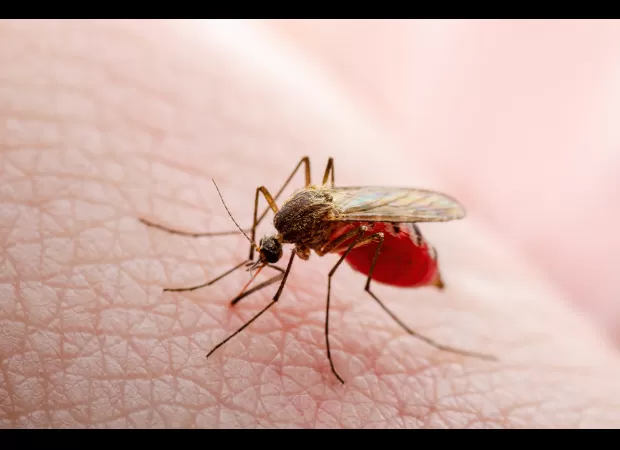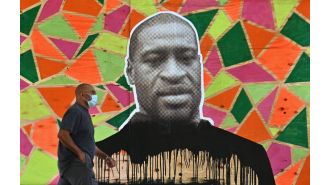Why are some individuals more prone to insect bites than others?
Experts have given their opinions on the debate.

When some people get bitten by insects like mosquitoes, they experience severe swelling and discomfort. This is a common problem that doctors have been trying to understand for a long time. One such person who has been struggling with this issue is Anne Larchy, a 52-year-old woman from north London. She has a strong reaction to insect bites, and her hands and feet swell up to almost double their normal size. In fact, her reaction is so severe that she had to be hospitalized 25 years ago during a trip to Israel after being bitten 15 times. Due to her sensitivity, Anne missed out on the opportunity to volunteer at the London 2012 Olympics, as a bite on her foot prevented her from wearing shoes or standing for long periods of time.
In an interview with MailPlus, Anne shared her experience, "Every summer, I get at least one infected bite, usually on my feet, ankles, hands, or arms, as they are the most exposed areas. I try my best to prevent it by using strong insect repellent and covering my arms and legs, but they still manage to bite me. I know it could be worse if I didn't take these precautions, though."
James Logan, a professor of medical entomology at the London School of Hygiene and Tropical Medicine, explained that our body's immune system plays a significant role in how we react to insect bites. "Over time, our bodies can become immune to these bites, and the reaction becomes less severe," he said. The science behind it is quite fascinating. "Some of us are more prone to getting bitten than others, which could be due to our body's odor. People who don't get bitten as much produce natural repellents in their body odor, which acts as their own defense system," he added.
These chemicals are believed to be influenced by both genetic and environmental factors, as well as the types of bacteria that live harmlessly on our skin. "Some of these chemicals are released in our sweat, and they can also be consumed by the bacteria on our skin, which produces even more of these chemicals. This, in theory, makes us even less attractive to insects," Professor Logan explained.
Interestingly, Professor Logan's research also found that midges are more likely to bite tall men and women with a higher body mass index. "We don't know the exact reason for this, but it could be because taller people have larger chests and lungs, which means they take in more oxygen and release more carbon dioxide, making them more appealing to insects," he said.
Another study found that people with blood type O are more attractive to mosquitoes, but the reason behind this is still unclear. "Mosquitoes seem to 'sniff out' this blood type, but we're not sure why," Professor Logan stated. Whether it's our immune system, body odor, or blood type, the mystery behind why some people are more prone to insect bites continues to intrigue researchers.






